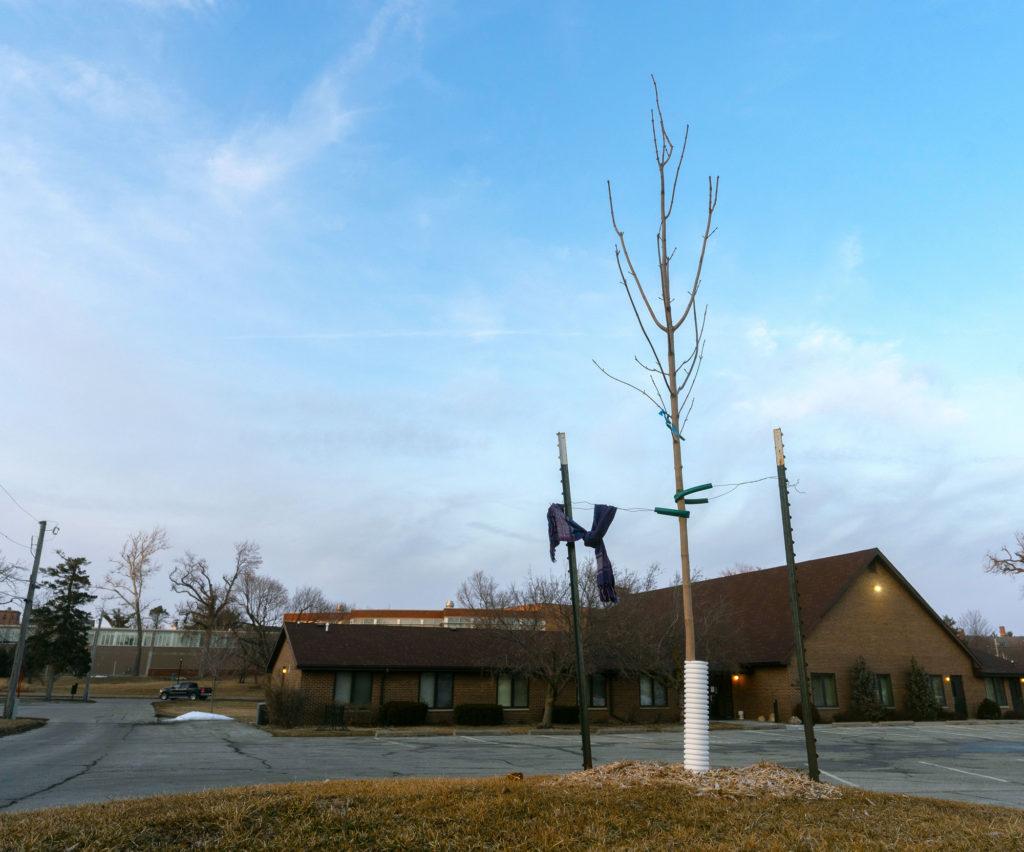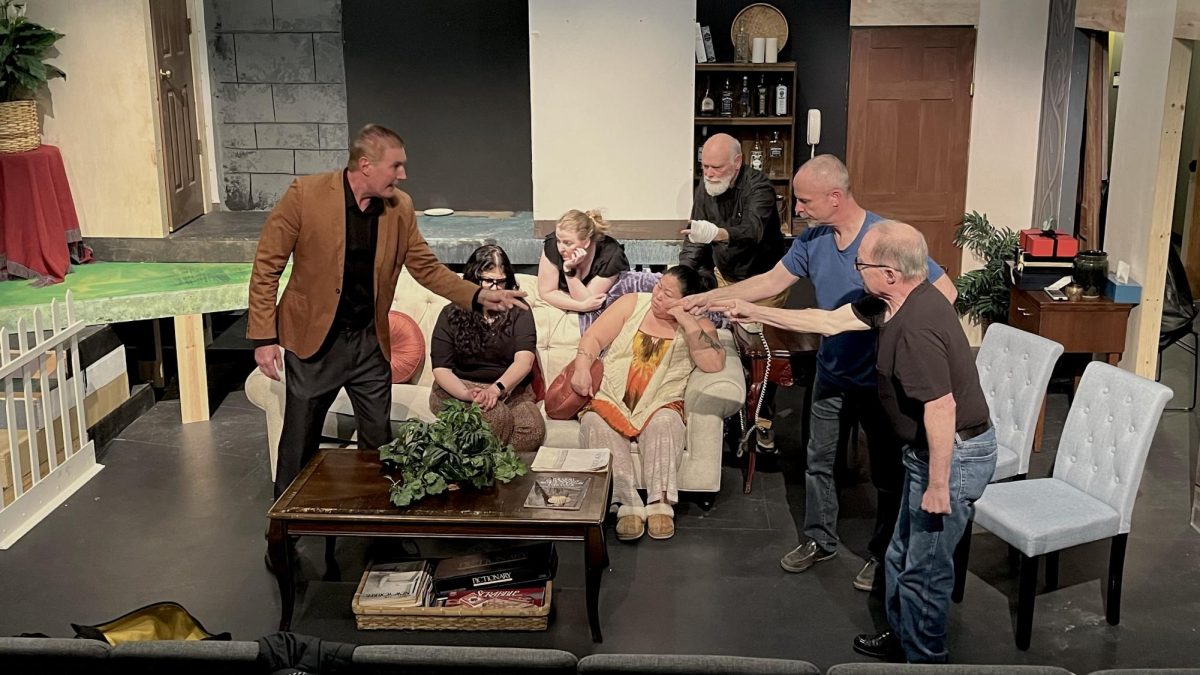In late 2020, 1000Trees, a program by local nonprofit Imagine Grinnell, was launched to address the damage the August 2020 derecho caused to the canopy of Grinnell’s trees. The initiative’s goal is to plant 1000 trees in Grinnell and the city’s outskirts to recreate the environment the derecho destroyed.
“Over the last year and a half we’ve raised almost $75,000 and we’ve planted about 350 shade trees of different types of maples and oaks and different and others. They’re all legacy trees that should be here for 75, 100, 150 years,” said Tim Ellsworth, Board President of Imagine Grinnell and member of the 1000Trees committee.
Imagine Grinnell heads several programs, including an initiative called The Tree Corps. The Tree Corps has been directly involved in the 1000Trees initiative as it supports the planting and watering of the trees.
An invasive insect called the emerald ash borer, which feeds off the bark of ash trees, has also caused damage to Grinnell’s tree canopy. They have been weakening trees in Grinnell for years, and after the derecho, it was found that approximately 37 percent of the Grinnell canopy had been lost to the insects and derecho.
Ellsworth said that the initiative had trouble with the logistical and financial aspects of planting so many trees.
Among the concerns was the proper method of planting a new tree between the sidewalk and the street. Trees are also costly to replant; the trees they planned to replant were priced anywhere between $150-500 each.
“It became obvious that we were going to have to raise money and then try to involve people that knew a lot about trees because we don’t want to plant the wrong trees,” said Ellsworth.
The 1000Trees committee initiated the help of a certified arborist, a landscape architect, the nonprofit organization Trees Forever and Grinnell residents passionate about the project to develop a new urban forestry plan. The committee did research on raising money and cost-efficient ways to purchase and plant a diverse population of trees.
To assess what areas of town suffered from the most loss of canopy, 1000Trees used a database provided by the Tree Inventory Project, a joint project with Imagine Grinnell and Grinnell College to plan for long-term maintenance of Grinnell’s trees.
“We found that the areas with the most tree damage were also the places where the trees weren’t as full. They were the areas where economically they aren’t as rich and have more holes in the canopy. That’s what we have found is the case in most major cities too,” said Ellsworth.
A vital part of the planting process is the consistent watering of the trees after they are planted.
“We just got a mini grant from the college actually to pay for a watering trailer because we realize that part of the problem with getting these trees planted is that if you ignore them for the first two or three years they die … so we linked up with the city to use their watering buggy and watered a lot of the new trees,” said Ellsworth.
We feel like we’re doing the work for our kids and our grandkids. – Tim Ellsworth
The city itself has also been contributing to replanting, and Imagine Grinnell has been able to help by providing manpower. Volunteer days run by businesses like Grinnell Mutual help provide needed staff to the efforts, with one of their events receiving 68 volunteers according to Ellsworth.
Imagine Grinnell organized four tree planting events last year, with volunteers of all age groups. Ellsworth shared the importance of an intergenerational volunteer force lies in the shared knowledge across age groups.
To involve the youth of Grinnell, the initiative planted trees, sponsored by businesses like Grinnell Mutual or Alliant Energy, at every school in Grinnell. 1000Trees also hosted a seedling giveaway where they gave a seedling to every third grader in town.
Ellsworth shared that the Tree Corps would need more volunteers to continue watering the trees in the coming year and to plant more trees.
“What’s so interesting is how quickly it’s changed. We don’t have an urban forestry plan yet, but we have the makings of one and we’re moving towards it … we feel like we’re doing the work for our kids and our grandkids, but we’ll have benefits from it as well,” said Ellsworth.



























































